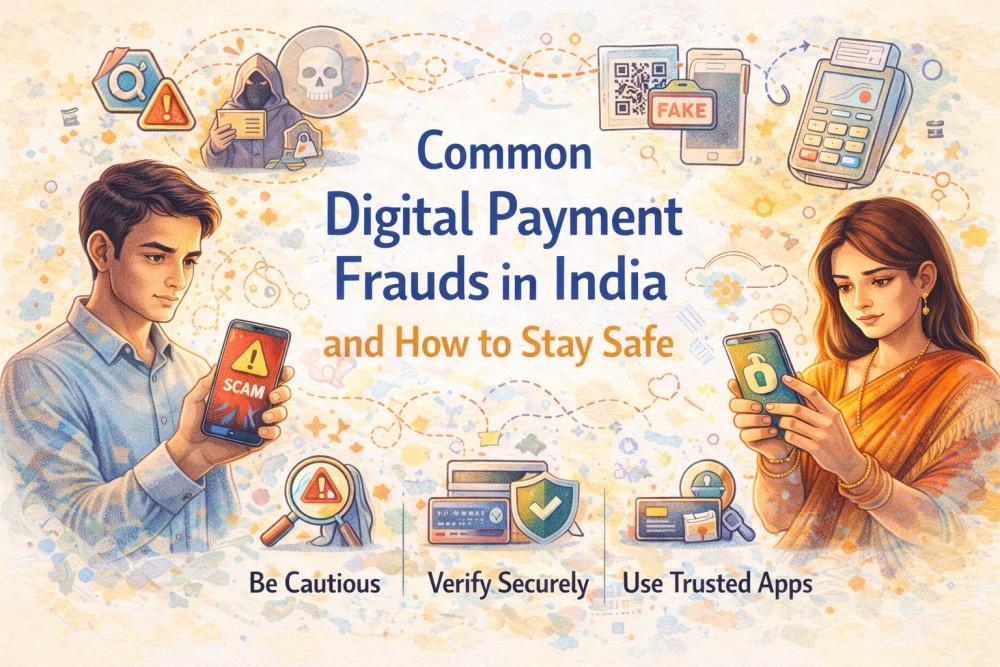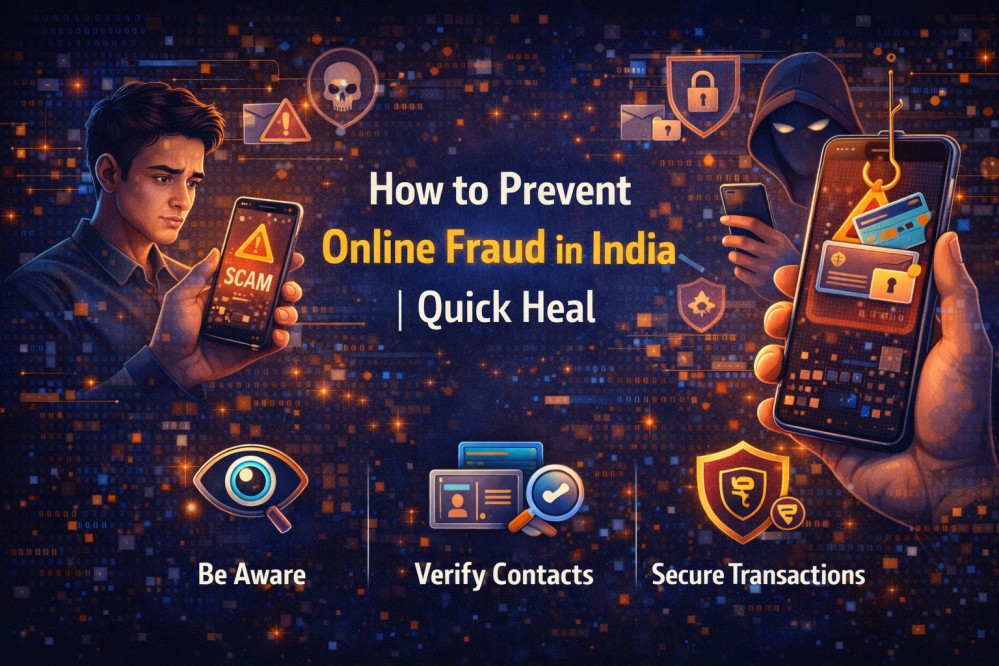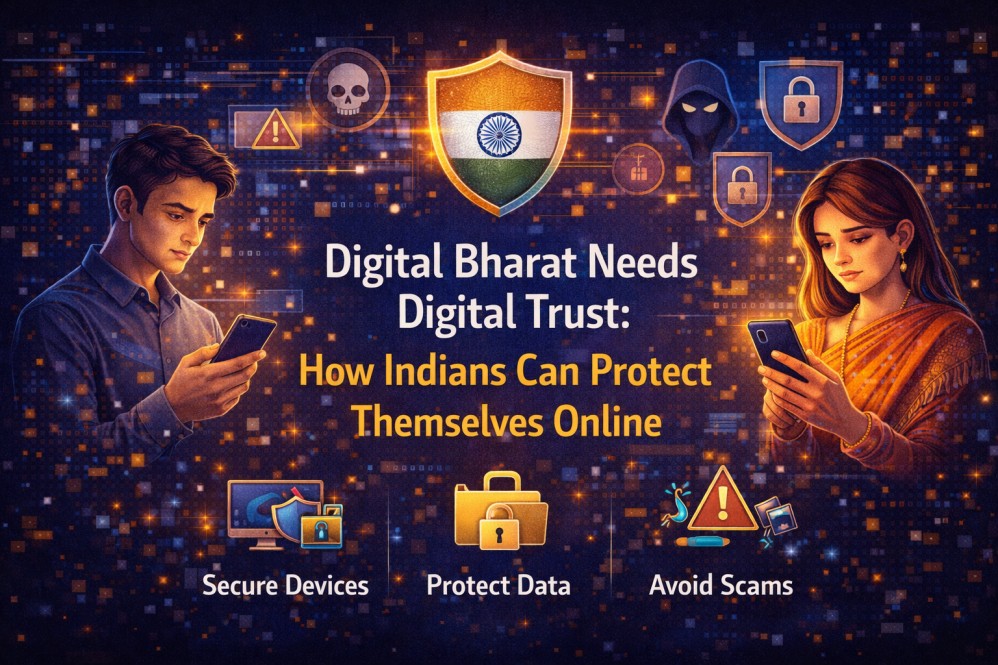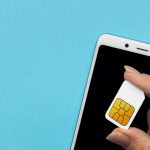Mar

How to Stop Mobile Phone Tracking and Protect Your Privacy
-
Quick Heal / 12 months
- March 7, 2025
- 0
These days, it feels like our smartphones know more about us than we do. From where we go to what we browse, everything gets recorded. While phones are helpful for everyday tasks, they also carry a hidden risk: mobile tracking. Many people don’t realise that their movements and digital behaviour are being constantly followed.
If you’ve ever wondered how to stop mobile tracking, you’re not alone. With privacy becoming harder to maintain, it’s essential to understand how phones are tracked, why it matters, and what you can do to protect yourself. This guide walks you through it all, clearly and simply.
What is Mobile Phone Tracking?
Tracking a mobile phone refers to the monitoring of the location, activity, or usage of your device without your explicit consent. It is possible in a number of ways: GPS, cell phone towers, Wi-Fi networks, Bluetooth connections, or via permission-requiring apps.
For example, a particular application may require location permission even though it does not require it. Once authorised, they will be able to mine your data around the clock quietly. In the same way that your browsing behaviour is being tracked, advertisers and websites keep track using cookies.
When people start seeing some unusual ads or feel that their personal life is no longer so personal, they often wonder how they can prevent their phone from being tracked. And they have every reason to be concerned, because such tracking might easily spin out of control unless it is controlled.
Risks of Mobile Phone Tracking
Mobile tracking isn’t just about losing privacy. It can have serious consequences that most people don’t think about until it’s too late.
Data Theft and Identity Fraud
You might be surprised to learn how much personal information is stored on your phone, including ID proofs, banking apps, email logins, and OTPs. Someone could abuse this information if they are able to trace your device and retrieve it. Spyware is a standard tool used by cybercriminals to gather and transmit this type of data surreptitiously.
This facilitates identity theft, in which they pretend to be you in order to open accounts, submit loan applications, or even commit fraud. A basic program or link that initially seems innocuous can be the beginning of all of this.
Targeted Advertising and Profiling
Have you ever done an internet search and then seen advertisements for it everywhere? It’s tracking, not magic. Businesses use your activities to create a profile and display adverts based on what they believe you would click. This is a breach of privacy, even though it may appear to be smart marketing.
Frequently, these profiles are saved, examined, and sold to outside platforms. This implies that even more individuals, without your permission, have access to your movements, habits, and interests.
Potential for Surveillance or Stalking
In the wrong hands, tracking tools can be dangerous. There have been cases where abusive partners or stalkers have used spyware to follow someone’s location, read their chats, or listen in on calls. What starts as “just tracking” can turn into severe harassment.
If you think this can’t happen to you, think again. Anyone who has access to your phone for just a few minutes could install a silent tracking tool. This is why preventing cell phone tracking isn’t just about digital privacy—it’s also about physical safety.
How to Check if Your Phone is Being Tracked
So, how do you know if your phone being tracked?
Below are some of the signs which will help you to track whether your phone is being tracked or not:
Unusual Battery Drain
If you are noticing that your phone battery starts draining quicker than usual, then it could be a warning.
Increased Data Usage
A sudden rise in your mobile data usage might indicate that something is wrong. Spyware and tracking tools need internet access to transfer your information. So if you’re using more data without streaming or browsing more than usual, investigate further.
Strange Pop-ups or Ads
If you notice unwanted ads or odd pop-ups are coming, especially when you are browsing, there might be a malicious app on your phone.
Background Noise During Calls
Faint echoes, static, or odd clicking sounds during calls could be signs that a call was intercepted. Even while this isn’t always the case, it’s still wise to be cautious, especially if you see it happening often.
Presence of Unknown Apps
Browse your settings and app drawer on a regular basis. Uninstall all the applications you cannot recall downloading at once, particularly those with suspicious names or default icons. In order to avoid detection, some spy programs even pretend to disguise themselves or use alias names.
How to Stop Someone From Tracking Your Phone
Here are some of the best ways to stop your mobile phone from tracking:
-
Turn Off Location Services
One of the easiest steps you can take is to disable your phone’s location when it’s not needed. You can also manage location settings for each app individually.
-
Limit App Permissions
Many apps request more access than they need. Review permissions regularly. Disable camera, microphone, and location access for apps that don’t require them.
-
Two-factor authentication
Enable two-factor authentication for your accounts to prevent unauthorized access
|
Setting |
iOS |
Android |
|
Location Services |
Settings > Privacy > Location Services |
Settings > Location |
|
App Permissions |
Settings > Privacy > Select the app > Adjust permissions |
Settings > Apps & notifications > App permissions |
|
Two-Factor Authentication |
Settings > [Account Name] > Password & Security > Two-Factor Authentication |
Settings > Google > Manage your Google Account > Security |
-
Use VPN Services
VPNs (Virtual Private Networks) help in masking your system IP address and encrypting every internet activity you do. This makes it hard for false websites or hackers to trace your exact location or device activities.
-
Avoid Public Wi-Fi Connections
Make sure not to use wi-fi installed in public places such as airports, bus stands, or cafes. Hackers use these to intercept data. Unless you’re using a VPN, avoid logging into sensitive accounts when connected to such networks.
-
Disable Ad Tracking
On Android, go to Settings > Google > Ads > Opt out of Ads Personalisation. On iPhone, visit Settings > Privacy > Apple Advertising, and turn off personalised ads. This won’t stop all tracking, but it reduces how much your activity gets shared for marketing purposes.
Recommended Privacy Tools and Apps
Taking help from the right tools can make your phone more secure without much effort.
Best Anti-Spyware Apps for Mobile Devices
Always install the best anti-spyware apps on your phone as they can detect and remove hidden spyware. Use them to scan your phone regularly. These apps work quietly and won’t affect your daily usage.
Private Browsers You Can Use
Switch from regular browsers to private browsers so that your mobile phone remains secure. These block trackers by default and don’t save browsing history. It’s a small change that makes a big difference.
Tips to Enhance Overall Mobile Security
Protecting your phone from tracking is essential, but there are other things you should do to keep your phone safe. Here are some of the mobile security tips:
-
Regularly Update OS and Apps
When an update is issued, there is a reason behind it: it seals security holes. Be it your operating system on your phone or your app for your banking account, whatever it is, keep it all updated.
-
Don’t Click on Suspicious Links
Never click on the links that come to you via text or email, in case a stranger sends them. Many spyware programs are installed when bad links are clicked.
-
Use Strong Passwords and Lock Screens
Make your phone locked using tough passcodes, fingerprint, or face recognition. Don’t use poor passcodes such as 1234 or your birthday. Also, do not use the same passwords in various accounts.
-
Avoid Downloading Apps from Unknown Sources
Make sure not to download any of the mobile apps from unknown sources. It implies that we should only stick to the Apple and Google app stores. Before installing a new thing, read reviews and find out what information the application wants to get, to be sure that your data stays secret.
Frequently Asked Questions
-
How do I turn off mobile tracking?
Go to your phone’s settings, select location services or privacy settings, and turn off location tracking. This will prevent apps from tracking your location.
-
Can someone track my phone without me knowing?
Yes, there are many apps people can easily install on their phone to track someone’s phone location without their knowledge. But there are ways to find out whether your phone is being hacked or not.
-
How can I detect a tracker on my phone?
Check your installed apps and look for anything suspicious that you didn’t install. Also, check settings to see if location services are on for apps you don’t use for location.
-
How do I make my phone not trackable?
Turn off location services in your settings so apps cannot access your location data. Also, turn off GPS and any other location tracking options.
-
Can someone track my phone if my location is off?
If location services are fully disabled in settings, your phone should not be trackable through apps. But some find other ways, like through calls or SMS logs. So be careful of suspicious links and downloads.






